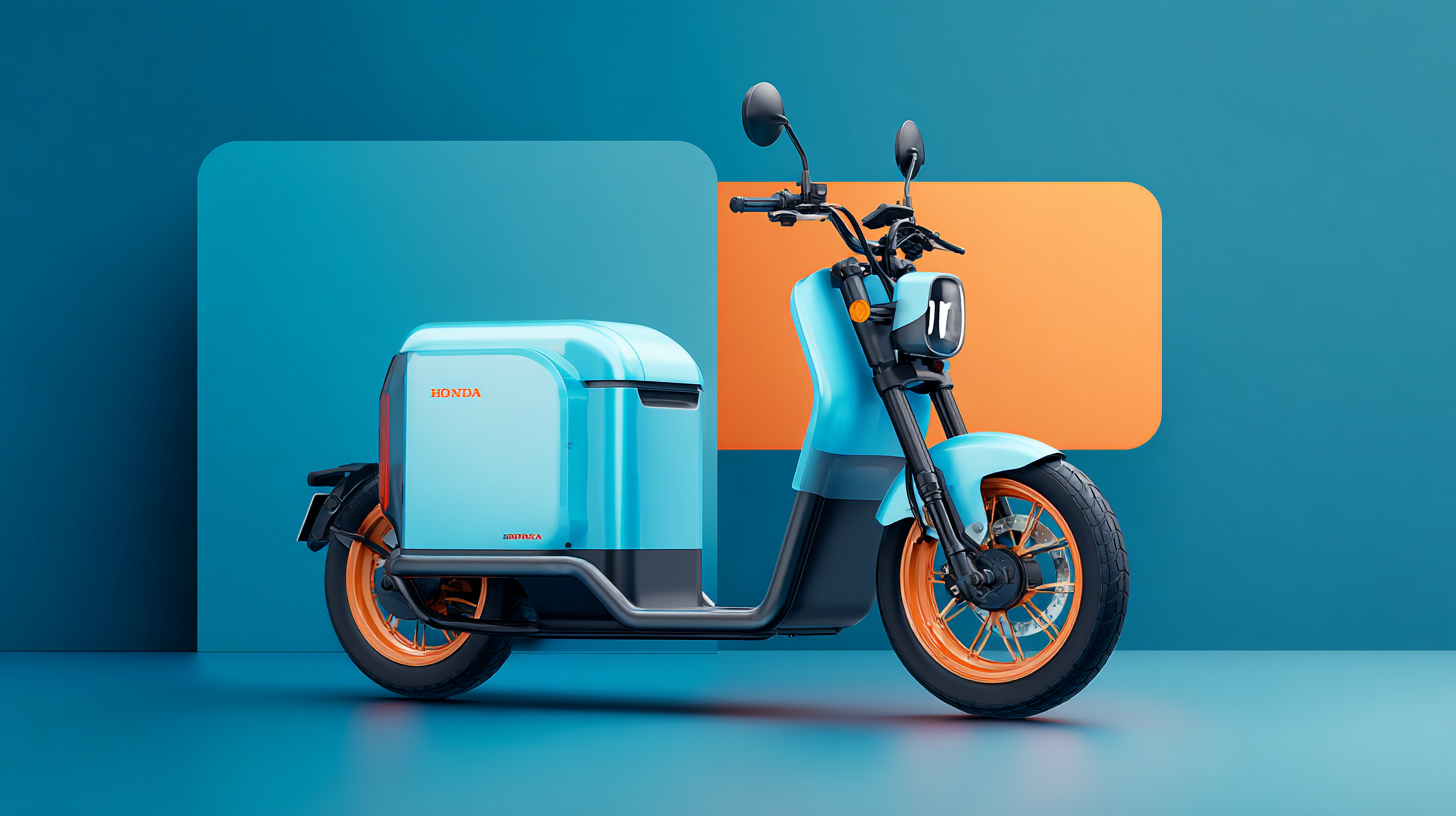In recent years, urban logistics has evolved significantly, prompting major players in the freight and logistics services to re-evaluate their strategies for last-mile delivery. Rising consumer demands and environmental concerns have necessitated innovative solutions, with companies seeking to streamline urban delivery services. One of the most exciting developments in this space is Honda’s entry into last-mile delivery through its recently launched Fastport eQuad. This electric micromobility solution addresses key challenges facing logistics operations in urban areas while offering a glimpse into the future of transportation.
The Challenges of Urban Delivery
Urban centers are bustling with activity, and yet, they face numerous inefficiencies within their delivery systems. The increasing demand for quick and efficient delivery options has created significant pressure on logistics companies. Some of the core challenges include:
- Inefficiency in Distribution: Traditional delivery methods often fail to keep pace with urban traffic congestion and narrow streets, making it difficult for vehicles to navigate efficiently.
- Environmental Impact: Growing concerns over carbon emissions and sustainability have led to scrutiny of conventional delivery vehicles that contribute to urban pollution.
- Rising Delivery Demands: E-commerce has transformed consumer expectations, requiring businesses to adapt rapidly to offer same-day or next-day delivery services.
Honda’s Fastport eQuad: A Solution in Micromobility
With the launch of the Fastport eQuad, Honda is introducing an innovative model that combines advanced technology and sustainable transportation practices. The eQuad is designed specifically for last-mile delivery in urban areas, offering a range of features that address the aforementioned challenges:
- Compact Design: The eQuad’s small footprint allows it to maneuver effortlessly through congested streets and narrow pathways, significantly improving delivery efficiency.
- Environmentally Friendly Operation: Equipped with electric motors, the eQuad produces zero emissions, making it a viable option for companies committed to green transportation solutions.
- Cost-Effective Solution: By reducing fuel costs and maintenance expenses typically associated with larger delivery vehicles, the eQuad presents a financially attractive alternative for logistics companies.
The Implications for Logistics Companies
As logistics companies face an evolving landscape, integrating innovative solutions like the Fastport eQuad can yield multiple benefits. Companies can enhance their delivery operations by addressing delivery inefficiencies and aligning with sustainability goals. Here are key implications for logistics stakeholders:
- Enhanced Efficiency: The combination of speed and maneuverability greatly reduces delivery times, allowing companies to meet customer expectations more effectively.
- Improved Sustainability: By implementing electric micromobility solutions, companies can position themselves as leaders in sustainable mobility and reduce their overall carbon footprint.
- Adaptation to E-Commerce Trends: Embracing innovative delivery mechanisms like the eQuad will empower logistics firms to adapt to the ever-increasing consumer demand for rapid deliveries.
Urban Planning Considerations
It’s essential for urban planners to consider the implications of micromobility solutions like the eQuad when developing transportation networks. Effective integration of such vehicles into urban infrastructure can lead to:
- Improved Traffic Flow: Supporting micromobility can alleviate congestion and facilitate smoother transit in crowded areas.
- Increased Accessibility: Micromobility solutions can bridge essential gaps in transportation networks, ensuring that all urban populations can access delivery services.
- Support for Local Businesses: A reliable last-mile delivery system encourages local entrepreneurship and boosts economic growth by enhancing logistics capabilities.
Real-World Examples of Micromobility Success
Honda is not alone in recognizing the potential of micromobility in the logistics industry. Numerous companies have started to implement similar solutions to optimize urban delivery:
- Amazon: With their introduction of delivery drones and electric delivery vehicles, Amazon is reshaping how products reach consumers quickly and efficiently.
- UPS: The company has successfully tested e-bikes for last-mile deliveries in densely populated areas, resulting in reduced delivery times and emissions.
- FedEx: Their use of electric vehicles for urban deliveries aligns with broader sustainability goals and contributes to cutting down the carbon footprint.
Future Trends in Urban Logistics
The logistics landscape is set to continue evolving with emerging trends in last-mile delivery and transportation. Here are some anticipated trends:
- Increased Adoption of Electric Vehicles: As more companies prioritize sustainability, electric delivery vehicles are likely to become the norm in urban logistics.
- Integration of AI and Data Analytics: Advanced technology will refine route optimization and delivery scheduling, driving greater efficiency in urban logistics.
- Partnerships and Collaboration: Logistics firms may form partnerships with micromobility providers to expand their service capabilities and enhance delivery options.
Conclusion: Embracing the Future of Last-Mile Delivery
Honda’s Fastport eQuad presents a promising solution in tackling the inefficiencies faced by urban logistics. As challenges like environmental impact and rising delivery demands persist, logistics companies are encouraged to explore micromobility options that align with their operational goals and sustainability objectives. By embracing innovative solutions like the eQuad, businesses can enhance their competitive edge and contribute positively to urban environments.
The shift toward micromobility signifies not just an evolution in delivery methods but also a broader commitment to sustainable transportation. In an age where consumers prioritize speed and environmental accountability, businesses in the logistics sector must adapt to stay relevant.
To learn more about how micromobility can transform your delivery services, connect with Pulivarthi Group today and discover tailored solutions that align with your objectives.

